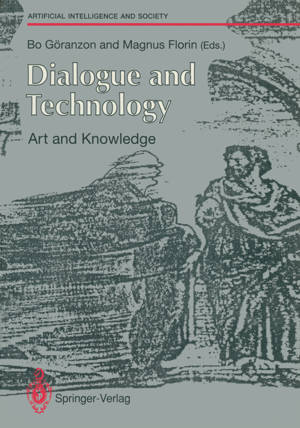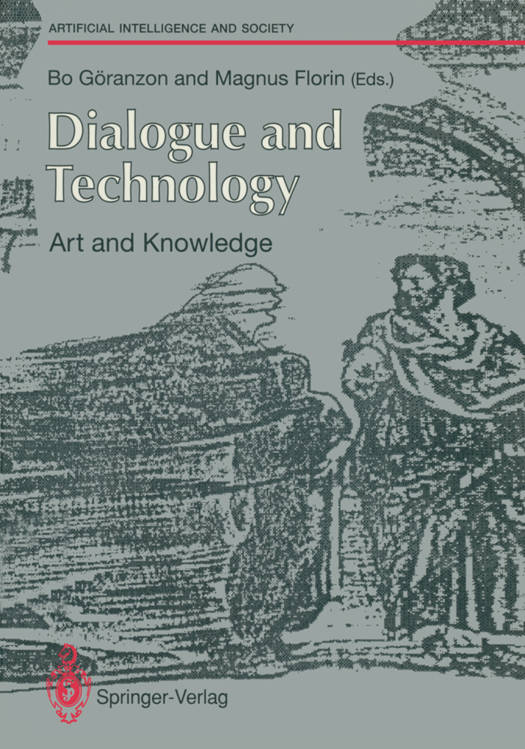
- Afhalen na 1 uur in een winkel met voorraad
- Gratis thuislevering in België vanaf € 30
- Ruim aanbod met 7 miljoen producten
- Afhalen na 1 uur in een winkel met voorraad
- Gratis thuislevering in België vanaf € 30
- Ruim aanbod met 7 miljoen producten
Zoeken
Dialogue and Technology: Art and Knowledge
€ 106,95
+ 213 punten
Omschrijving
This book springs from a conference held in Stockholm in May- June 1988 on Culture, Language and Artificial Intelligence. It assembled more than 300 researchers and practitioners in the fields of technology, philosophy, history of ideas, literature, linguistics, social- science, etc. The conference was an initiative from the Swedish Center for Working Life, based on the project AI-Based Systems mzd the Future of Language, Knowledge and Re- sponsibility in Professions within the COST 13 programme of the European Commission. Participants in the conference, or in some cases researchers in areas related to its aims, were chosen to contribute to this book. It was preceded by Knowledge, Skill and Artificial Intelligence (ed. B. Gbranzon and I. Josefson, Springer-Verlag, London, 1988) and Artificial Intelligence, Culture and Language (ed. B. Gbranzon and M. Florin, Springer-Verlag, 1990). The latter book springs, as this one, from the 1988 conference, and one further book will follow: Skill and Education: Reflection and Experience (Springer- Verlag, planned autumn 1991). The philosophical and aesthetic interest of the contributions in the present volume is in large part due to the framework of the Dialogue Seminar, held regularly at the Royal Dramatic Theatre in Stockholm, in which several of the contributors have participated.
Specificaties
Betrokkenen
- Uitgeverij:
Inhoud
- Aantal bladzijden:
- 197
- Taal:
- Engels
- Reeks:
Eigenschappen
- Productcode (EAN):
- 9783540195740
- Verschijningsdatum:
- 25/02/1991
- Uitvoering:
- Paperback
- Formaat:
- Trade paperback (VS)
- Afmetingen:
- 170 mm x 244 mm
- Gewicht:
- 349 g

Alleen bij Standaard Boekhandel
+ 213 punten op je klantenkaart van Standaard Boekhandel
Beoordelingen
We publiceren alleen reviews die voldoen aan de voorwaarden voor reviews. Bekijk onze voorwaarden voor reviews.






